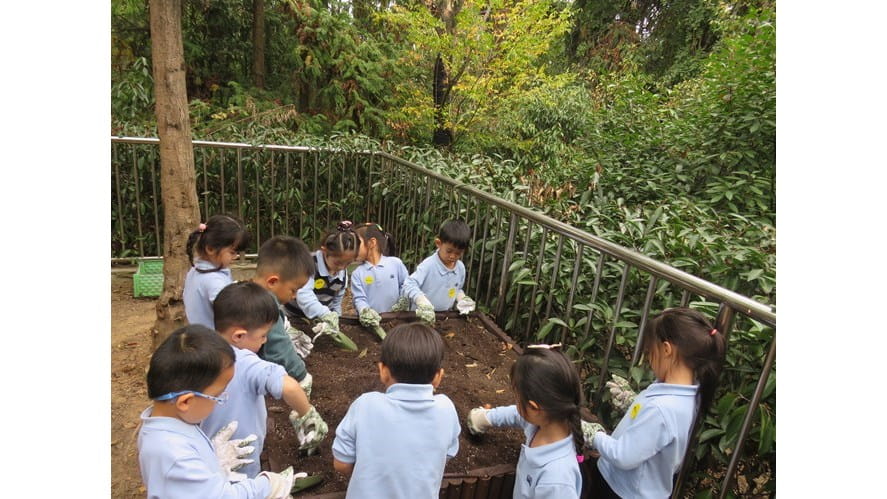We use cookies to improve your online experiences. To learn more and choose your cookies options, please refer to our cookie policy.

Many people understand outdoor learning as just playing and do not see it as an essential part of development, however, research has discovered that it is in fact an essential part to the development of young children. Children need to have frequent and regular opportunities to explore and learn in the outdoor environment and it is important that it is not seen as an optional extra.
This month our Reception teachers, Zinnia Baker and Betty Juru write about why outdoor learning is important as one of the areas that they both lead in Early Years.
Miss Baker graduated from Wales University and completed a teaching qualification at Sheffield Hallam in 2007. During her 12 years of teaching and she has taught both in the UK and China. Miss Baker loves to be involved in school life and has supported extra curricula activities such as Badminton for the whole school.
Miss Juru graduated from Conestoga College. Her education background is in Early Childhood Education. Miss Juru has worked in Canada and at an international school in Beijing, China. She has over seven years of hands-on working experience with children through the age of two to six years old.
Why is Outdoor Learning important?
Children need to have enough space, to run, walk, jump, cycle and explore the natural environment. Outdoor learning inspires creativity through children creating their own games, collecting and using natural materials to create new ideas, and gaining an understanding of the environment around them and actions needed to care for it. They also learn the ability to make links between what they are learning in the classroom to real life experiences.
From birth children are encouraged to explore spaces around them. When you place interesting materials near an infant, they will begin to develop their fine motor skills (initially it is usually grabbing tight on to objects). As infants grow and transition to young children, it is important that the environment around them offers many more opportunities for them to further develop into the wholistic child. In the early years program at BSN the children have planned opportunities to go outside for free playtime and lessons. While outdoors the children are developing and practicing their fine and gross motor skills. They begin to understand the concept of “safety”, and that they are responsible in identifying safe risks to take when exploring materials and equipment. The children can also exercise their five senses in exploring the different seasons outside.
What we are doing in school?
The children have started to plant their own vegetables and develop a garden area where they are able to watch organic vegetables grow, they have the responsibility to water and care for them. If they do not grow, then the children can reflect on why and discuss ways to help us to produce vegetables. This encourages self-reflection and responsibility. Lessons can also be taken outside. Our children love to use chalk to write on the ground, using leaves to create words, and exploring their environment with the iPads. These are just some of the ways that the outdoor environment is also a learning space.
These outdoor activities promote children in developing their language and communication skill. They learn the different names of seeds, collection important information to share back to the class. Children also develop numeracy skills, counting, measuring are concepts involved when gardening.